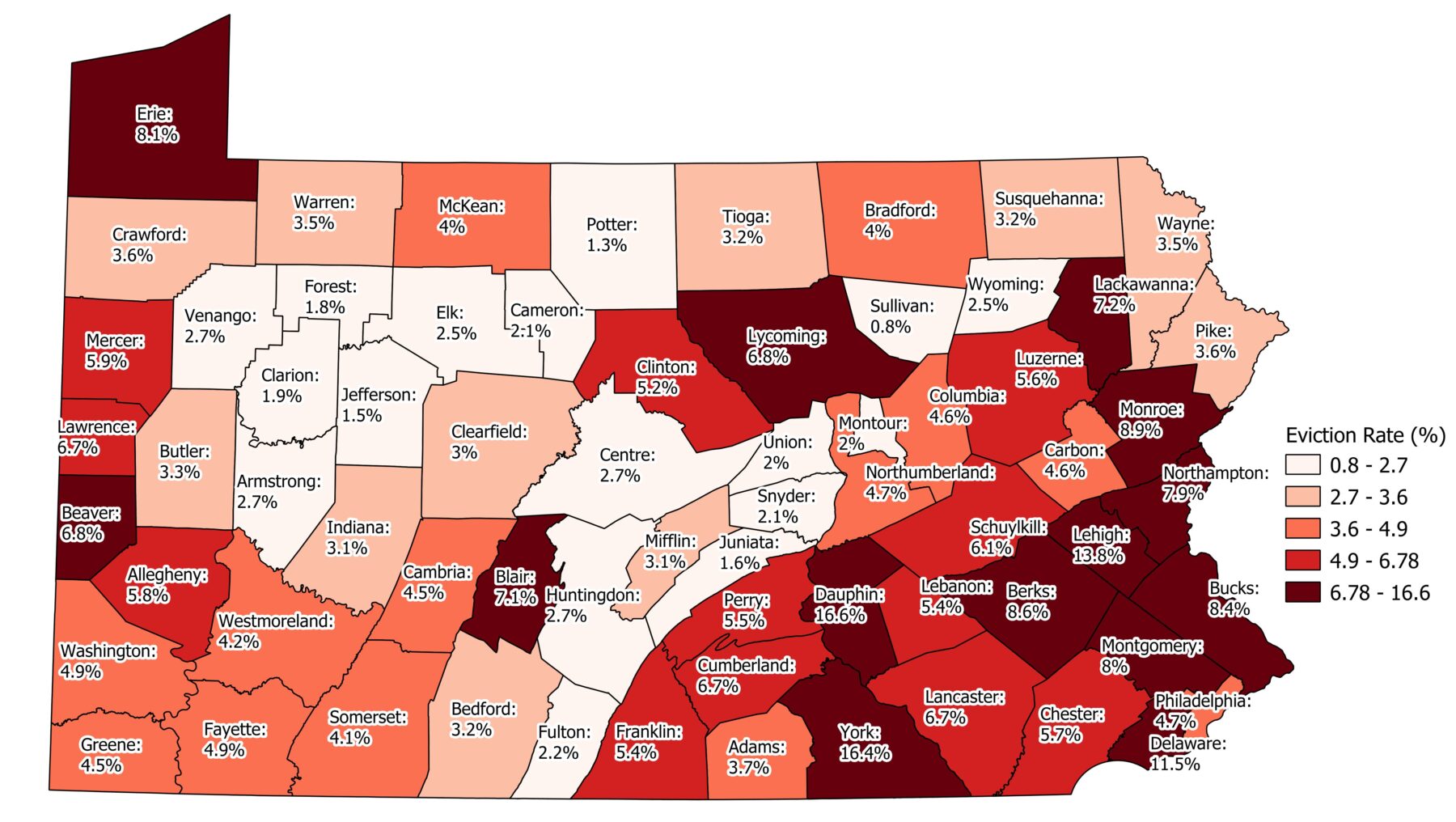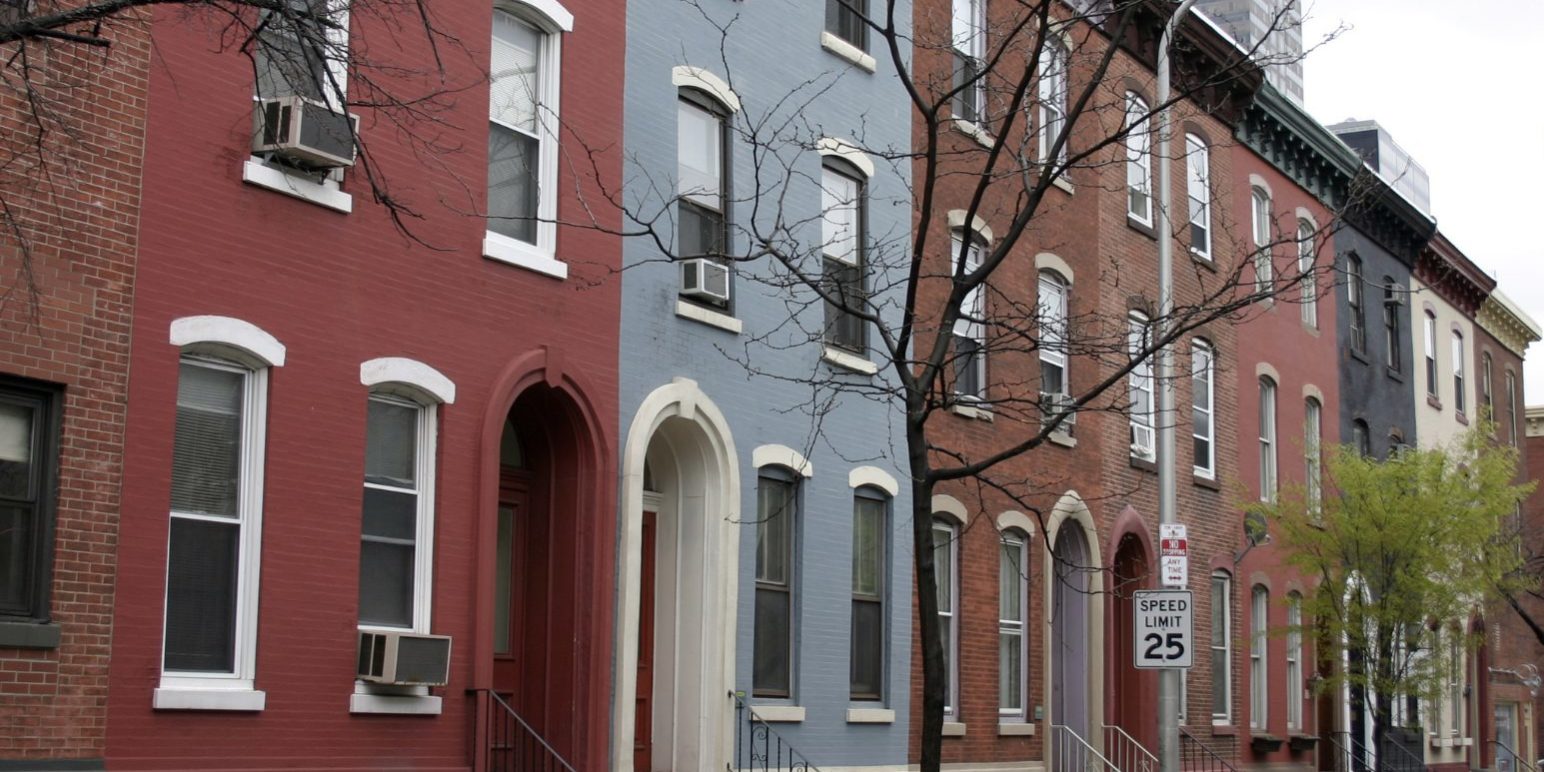Our homes provide the foundation for safe, healthy, and joyful lives. When families live in affordable homes, parents are more likely to find and keep a job, and children come to school ready to learn. However, landlords in Pennsylvania have filed to evict more than 357,000 tenants and their families since the start of the pandemic. We call these court records eviction filings or eviction records. Sign up to learn how eviction records harm Pennsylvanians.
Eviction records can haunt tenants for life, even if they were never actually evicted.
- The court creates a permanent eviction record any time a landlord files a case against a tenant.
- In Pennsylvania, eviction records remain publicly viewable forever. It doesn’t matter if the landlord drops the case the next day, or if the tenant wins in court.
- Thousands of for-profit tenant screening companies then scrape online court records and sell tenant screening reports to landlords when someone applies for housing.
- Landlords routinely deny tenants if they have any eviction record at all, making it much for difficult for families to access safe, stable housing.
Eviction records keep families locked out of housing in every part of the state.

Source: Civil Court Data Initiative, Legal Services Corporation, 2022. Data gathered and visualized by Lauren Parker. Data accessed May 2023
In 2023, CLS and PolicyLink released Advancing Pennsylvania’s Housing Futures: Sealing Eviction Records for Housing Stability and Economic Prosperity. The report illuminates the devastating impact of eviction records on Pennsylvania families and examines federal and state legislative actions around tenant screening.
Our analysis found that:
- By the summer of 2023, eviction filing rates in Pennsylvania were back to pre-pandemic averages.
- Eviction rates are becoming an even larger problem for suburban and rural communities.
- Dauphin, York, Lehigh, Delaware, and Berks counties have the highest eviction rates in the state.
New research from the University of Michigan illustrates how eviction filings hurt families, even when they were not evicted.
In a new report called Record Costs, researchers at the University of Michigan asked thirty tenants from across Pennsylvania to describe some of the collateral consequences of eviction.
Every tenant had legal representation and had their case resolved with a dismissal, withdrawal, or a win. No one received an eviction order in court.
Still, eviction filing threatened tenants’ housing stability, contributed to income loss and job insecurity, harmed their physical and mental health, and strained interpersonal relationships for years after the filing. Read the full report here.
Eviction record sealing can help Pennsylvanians find homes.
Eviction records keep Pennsylvanians locked out of homes for years to come, even if they won their case. And many people successfully recover from crises that forced them to fall behind on rent years ago. Record sealing is a vital way to make safe, stable housing more attainable for tenants with old eviction records. With support from tenants and housing advocates, state lawmakers have proposed the Ready to Rent Act (HB 1095). If signed into law, HB 1095 would automatically seal eviction cases filed seven or more years ago and clear the way for hundreds of thousands of Pennsylvanians to find homes.






